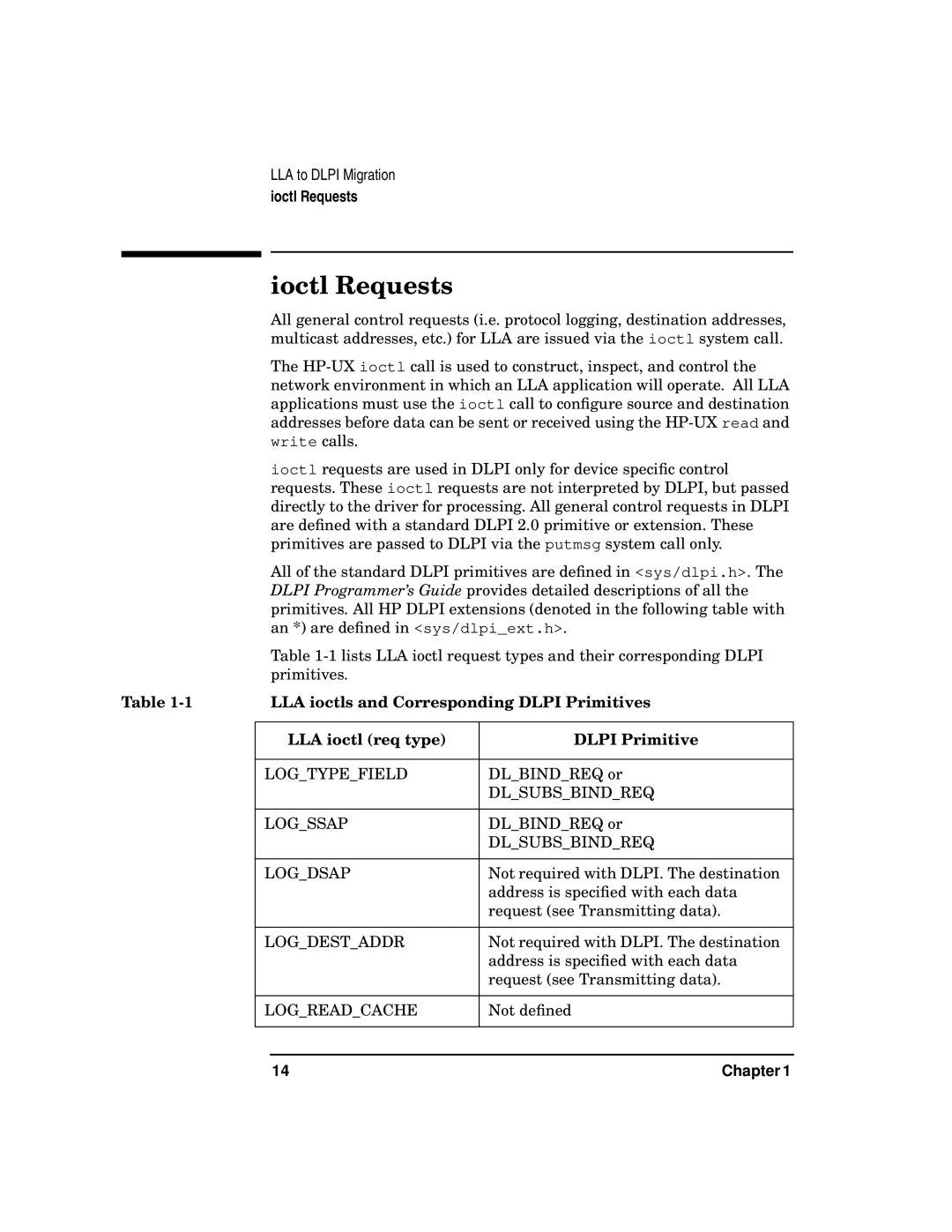
LLA to DLPI Migration
ioctl Requests
ioctl Requests
All general control requests (i.e. protocol logging, destination addresses, multicast addresses, etc.) for LLA are issued via the ioctl system call.
The
ioctl requests are used in DLPI only for device specific control requests. These ioctl requests are not interpreted by DLPI, but passed directly to the driver for processing. All general control requests in DLPI are defined with a standard DLPI 2.0 primitive or extension. These primitives are passed to DLPI via the putmsg system call only.
All of the standard DLPI primitives are defined in <sys/dlpi.h>. The DLPI Programmer’s Guide provides detailed descriptions of all the primitives. All HP DLPI extensions (denoted in the following table with an *) are defined in <sys/dlpi_ext.h>.
Table
Table | LLA ioctls and Corresponding DLPI Primitives | |
|
|
|
| LLA ioctl (req type) | DLPI Primitive |
|
|
|
| LOG_TYPE_FIELD | DL_BIND_REQ or |
|
| DL_SUBS_BIND_REQ |
|
|
|
| LOG_SSAP | DL_BIND_REQ or |
|
| DL_SUBS_BIND_REQ |
|
|
|
| LOG_DSAP | Not required with DLPI. The destination |
|
| address is specified with each data |
|
| request (see Transmitting data). |
|
|
|
| LOG_DEST_ADDR | Not required with DLPI. The destination |
|
| address is specified with each data |
|
| request (see Transmitting data). |
|
|
|
| LOG_READ_CACHE | Not defined |
|
|
|
14 | Chapter 1 |
